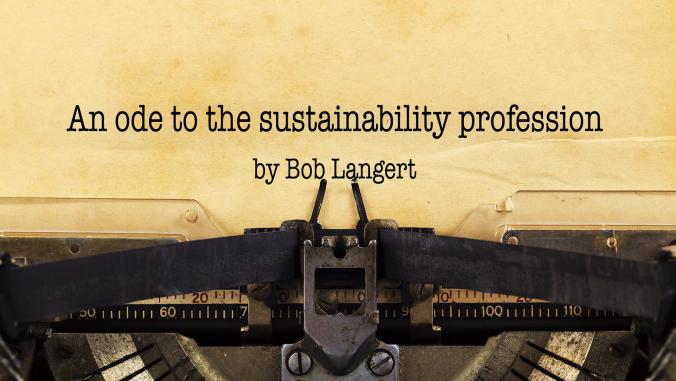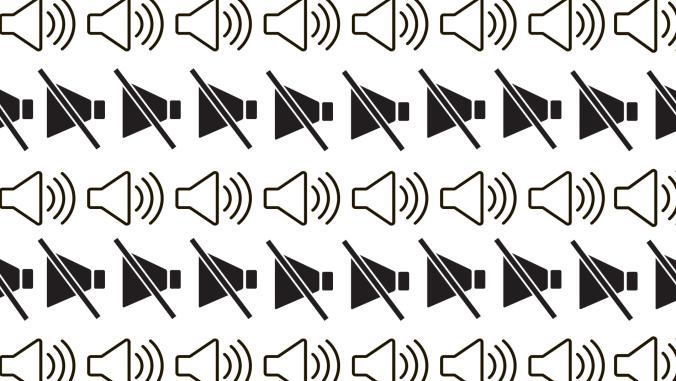An Earth Day open letter to sustainability NGOs
“Sustainability” is not sustainable until the consumer is engaged. Can the leading environmental nonprofits help?

Dear NGO friends and colleagues:
In many ways, creating an environmentally sustainable future has come a long way since my childhood in the 1960s. But in the most important ways, the current sustainability movement is stuck. The reality check is this: The consumer is less engaged today than in times past. We need a real surge to engage the consumer, or “sustainability” will be a niche that serves only a small segment of the marketplace.
I remember the first Earth Day in 1970. I was a young teen aware of the environmental laws then being put in place. Soon, the dead-fish-laden Lake Michigan that I knew going to the beach would blossom into a clean, pristine lake. I consider myself lucky to have grown up in the turbulent, socially conscious ’60s, with an unpopular war, civil unrest and lots of pollution. Earth Day 1970 was a symbol of changing that.
I saw real progress firsthand. I thought the involvement of consumers would escalate and evolve. My favorite band, Chicago, had a song that I loved called “Dialogue I and II.” It had a refrain that really inspired me: “We can change the world. We can change the world.” I really thought we could.
But things stalled.
Fast-forward to 1990. The recycling movement took off. Curbside programs mushroomed. The public got really engaged. Kids were telling parents to recycle, and learned to “Reduce, Reuse, Recycle” at school.
I started a job back then that became a more than a job to me, as director of environmental affairs for McDonald’s. I was part of the McDonald’s team that worked with the Environmental Defense Fund in a breakthrough collaborative partnership that ended up reducing literally tons of waste during the 1990s. We celebrated in 1999 when we announced our progress: 300 million pounds reduced in our U.S. restaurants.
This was achieved all without spending a penny more, but spending more wisely.
A big yawn
I thought then that this environmental movement really had taken off. But the recycling craze peaked in the early 1990s. There has not been a significant increase in public recycling for the past 25 years. Many cities have cut back their recycling programs due to economic pressures.
Al Gore and his advocacy on climate change gave things a temporary boost a few years back, but other than that, from a consumer perspective, it has been a big yawn.
While the consumer movement is quiet, the corporate environmental movement — including corporate collaborations with NGOs — is on fire. In 2005, Walmart worked with the EDF, Conservation International and others to put in place bold environmental goals, including zero waste. Similar actions and partnerships came from Unilever, Nestle, Nike, Coke, General Mills and General Electric, among others. For example, Coca-Cola has a “water neutral” goal. These aspirations, goals and progress are amazing.
The company I recently retired from is in the mix, too. For example, McDonald’s USA now has certified sustainable coffee (by Rainforest Alliance, for espresso-based coffees only) and fish (by the Marine Stewardship Council) in its restaurants. McDonald’s recently announced a goal to start purchasing sustainable beef in 2016.
When I was invited to speak to the EDF Corporate Partnerships Program recently, it dawned on me that that, collectively, the progress companies are making is remarkable, maybe close to being revolutionary (my ’60s mindset talking). The collaborative power and influence of so many NGOs that are partnering with companies and with one another is equally remarkable.
Bright, savvy, practical
I reminisced about my favorite experiences working with EDF over the years, not only on packaging, but on antibiotics, energy and forestry. I got emotionally moved recalling and sharing my 25 years of working with EDF people, who are as bright, savvy and practical as they come.
Many companies have had similar relationships and results. Many NGOs have top talents working with companies, forging new, innovative ways to solve tough sustainability issues while helping companies still make a profit and grow. For instance, McDonald’s is working closely with the World Wildlife Fund on sustainable beef development and other food and agriculture issues.
This Earth Day, there is much to celebrate. More companies are engaged, setting goals and making tangible progress that benefit the triple bottom line of people, planet and profits. Many NGOs have collaborated with, and campaigned against, companies to move them down the sustainability path.
But on this Earth Day, let’s call out the next frontier: Consumer collaboration.
I was asked by EDF: “How can McDonald’s educate and raise awareness to get the American consumer more engaged?” My answer was to flip the question and ask why the NGO community hasn’t been able to move the needle on consumer environmental consciousness. McDonald’s role is not to lead on that, nor should any other company, really. Companies are not credible environmental experts, yet they can partner with NGOs to reach the consumer.
In my lifetime, many experts, leaders and NGOs have changed the culture so that nonsmoking and wearing seat beats and bike helmets are everyday habits. However, the average consumer environmental IQ is no better than it was 20 or 30 years ago. I would argue it is far less than it was on Earth Day 1970.
The greatest failure we have had in the environmental movement is the failure of NGOs to reach the consumer. The consumer is king, and they will drive sustainability to the mainstream.
To those of you who lead environmental NGOs, I ask: Can you band together with leading companies to take on this challenge? We can develop a real “surge” of environmental awareness by working together.
Imagine what we can do together if like-minded companies partner with the best and brightest environmental NGOs to create an environmental awareness campaign and culture change.
Imagine how, as consumers get further educated, they flex their purchasing power and, in turn, motivate companies to take even more actions.
“Sustainability” is not sustainable until the consumer is engaged.
Sincerely,

Bob Langert
Retired Vice President, Sustainability, McDonald’s Corporation
Father of two daughters
Grandfather of three





